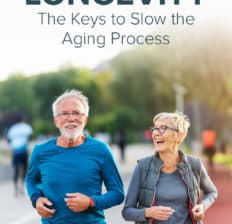This Dr. Axe content is medically reviewed or fact checked to ensure factually accurate information.
With strict editorial sourcing guidelines, we only link to academic research institutions, reputable media sites and, when research is available, medically peer-reviewed studies. Note that the numbers in parentheses (1, 2, etc.) are clickable links to these studies.
The information in our articles is NOT intended to replace a one-on-one relationship with a qualified health care professional and is not intended as medical advice.
This article is based on scientific evidence, written by experts and fact checked by our trained editorial staff. Note that the numbers in parentheses (1, 2, etc.) are clickable links to medically peer-reviewed studies.
Our team includes licensed nutritionists and dietitians, certified health education specialists, as well as certified strength and conditioning specialists, personal trainers and corrective exercise specialists. Our team aims to be not only thorough with its research, but also objective and unbiased.
The information in our articles is NOT intended to replace a one-on-one relationship with a qualified health care professional and is not intended as medical advice.
Longevity: The Keys to Slow the Aging Process
March 25, 2024

Most people tend to look at the cycle of life as inevitable, and while it’s true that none of us can outrun Father Time, there are natural life extenders that can activate longevity pathways to slow the aging process.
“Genes are not your destiny,” says Dr. David Sinclair, Ph.D., A.O., on the Dr. Axe show podcast. “… You can change that rate of aging by doing the right things.”
What are those things? Sinclair, a professor in the Department of Genetics, co-Director of the Paul F. Glenn Center for Biology of Aging Research at Harvard Medical School and founder of the Sinclair Lab at Harvard’s Blavatnik Institute, which specializes in genetics and longevity, says that a healthy lifestyle is the key, emphasizing these five things the most:
- Eat healthy.
- Don’t get obese.
- Exercise.
- Get enough sleep.
- Have friends.
“These things can extend your life span by 14 years or more just by doing the basics,” he says. “And it turns out an estimated 80% of your health and longevity is not genetic. It depends on how you live your life.”
Keys to Longevity
Sinclair says four important factors in longevity are:
- blood sugar levels
- inflammation
- liver function
- testosterone levels and hormones in general
By looking at these factors and others, Sinclair’s team has been able to determine people’s biological age — how old they are based on their bodies and health, not necessarily how long since they were born — and his researchers have discovered a group of longevity genes called sirtuins.
“They control how fast we age,” Sinclair says of sirtuins. “There are molecules in foods we eat that activate these defenses in our body, these genes. These molecules are the same that are in food types that people in Blue Zones eat: resveratrol and oleic acid found in things like olive oil, avocado and nuts.”
It turns out, these genes are not predetermined. They can be fostered to help extend longevity and support a healthier overall lifestyle.
“We’ve got the wrong conception about what aging is. We tend to think that it’s just a natural process that we can do nothing about, but we’ve learned that that’s not true — 80% of the rate of our aging is in our own hands. It’s actually controlled by how we live and what we eat,” Sinclair says.
“I am proposing a new theory about why we age: the loss of information in our body and how to preserve that information over time. The analogy would be if we had a DVD of information on ourselves, over time the it gets scratched, so the cell cannot read the original genetic information easily. What we’ve discovered is we can now polish that DVD and get the cell to read the useful information again. And in that way, we’re actually showing that we can reverse the aging process.”
This information is all backed by outside research as well. For instance, the American Heart Association looked at 30 years of data to unearth ways to add years to life and found some people may be able to add up to 12 years or more to their lives by following a healthy lifestyle.
The study determined that if people followed five low-risk lifestyle rules they could increase longevity and healthspan:
- Eat a healthy diet.
- Don’t smoke.
- Exercise regularly.
- Limit or eliminate alcohol consumption.
- Maintain a healthy body weight.
In a follow-up report published in 2023, the American Heart Association found that people who followed the organization’s Life’s Essential 8 (TM) experienced slower biological aging and those with high cardiovascular health were roughly six years younger biologically than their numerical, chronological age. What are those eight essentials? They are:
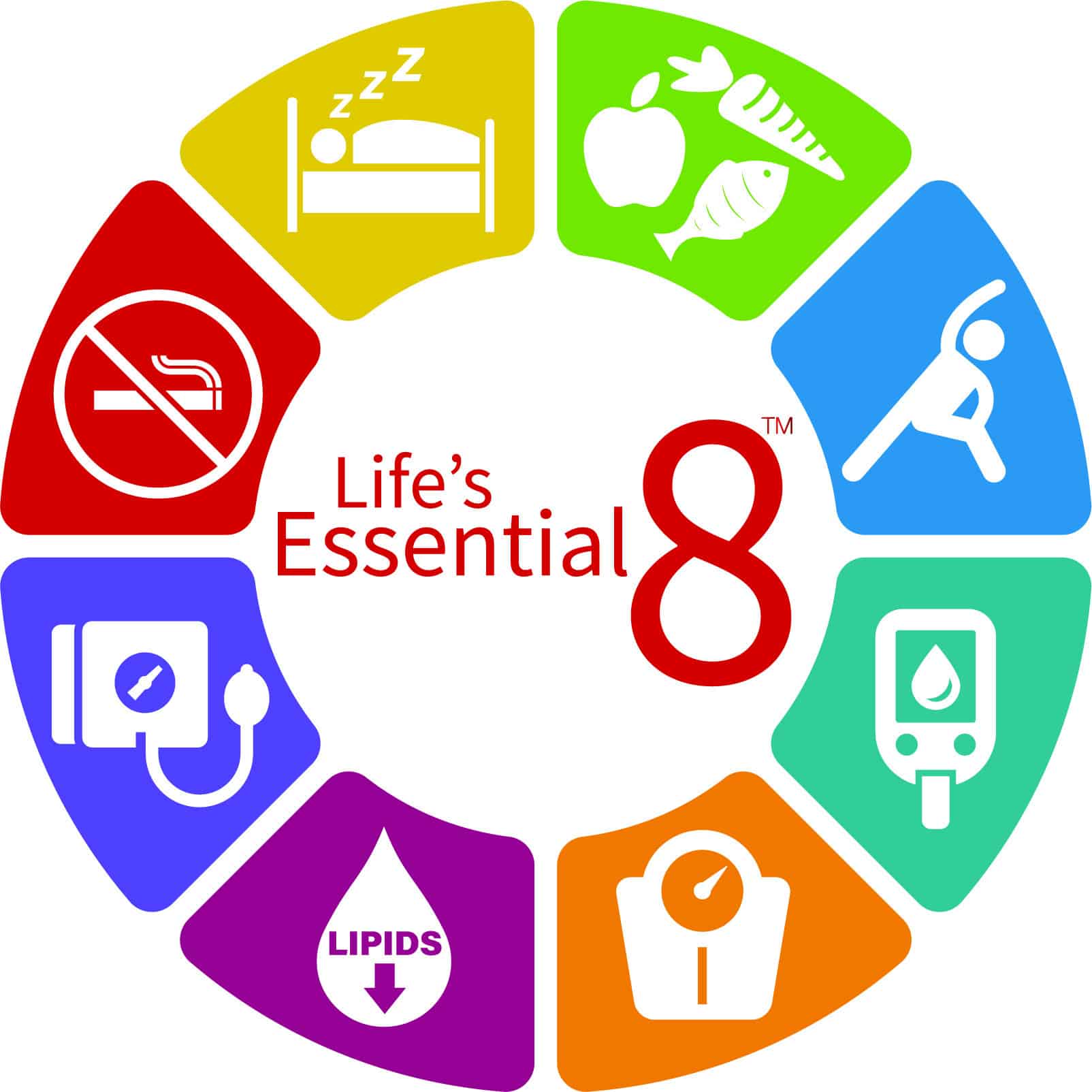
1. Eat Better
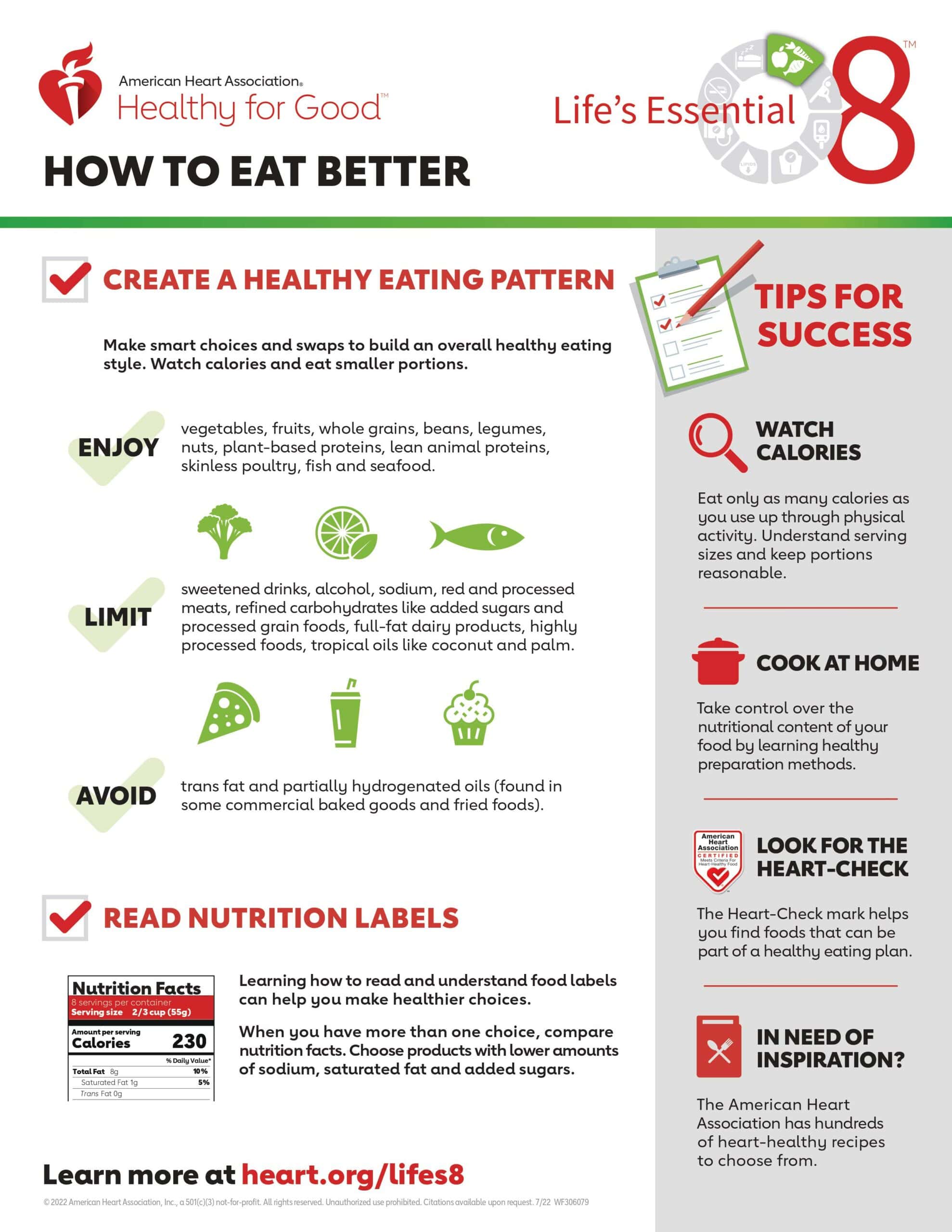
2. Be More Active
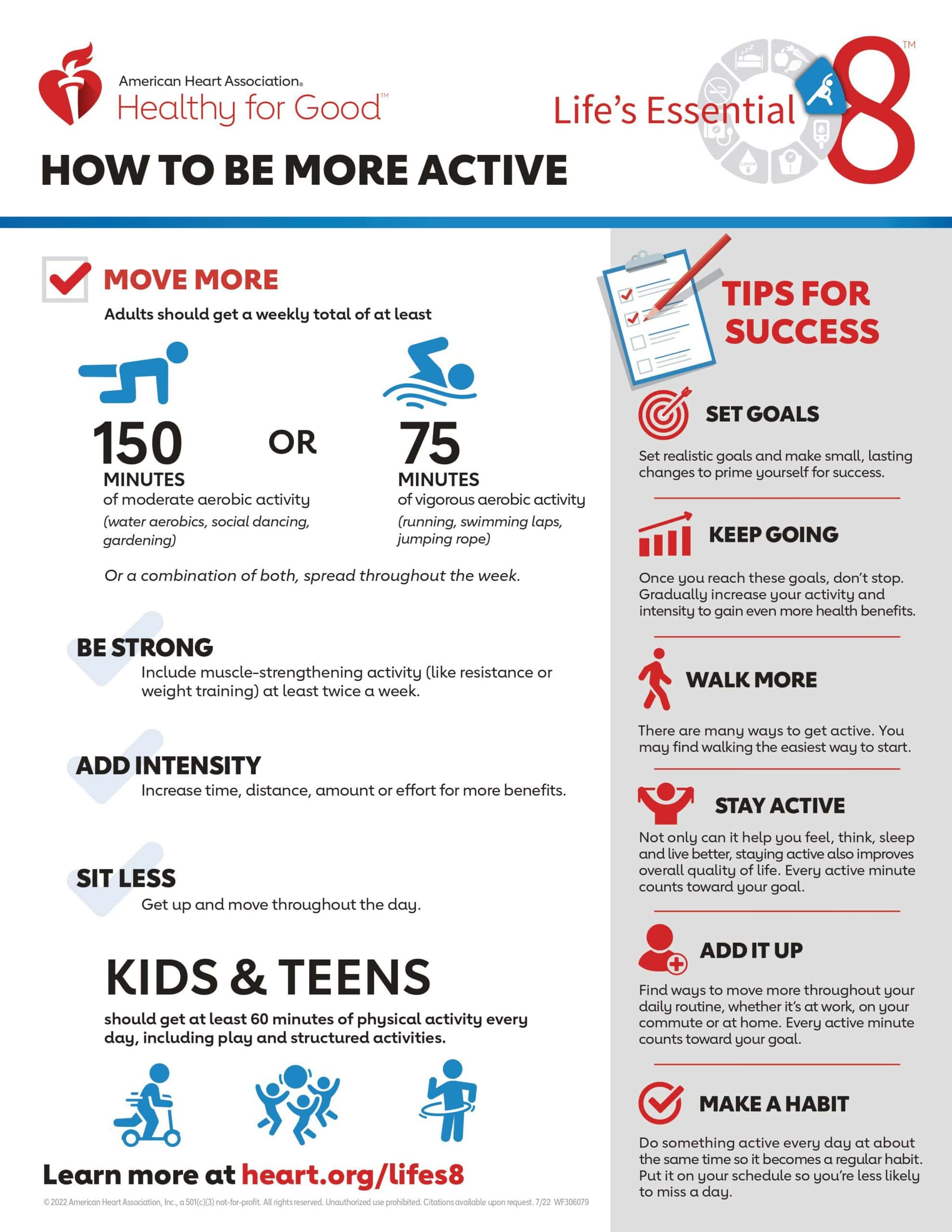
3. Quit Tobacco
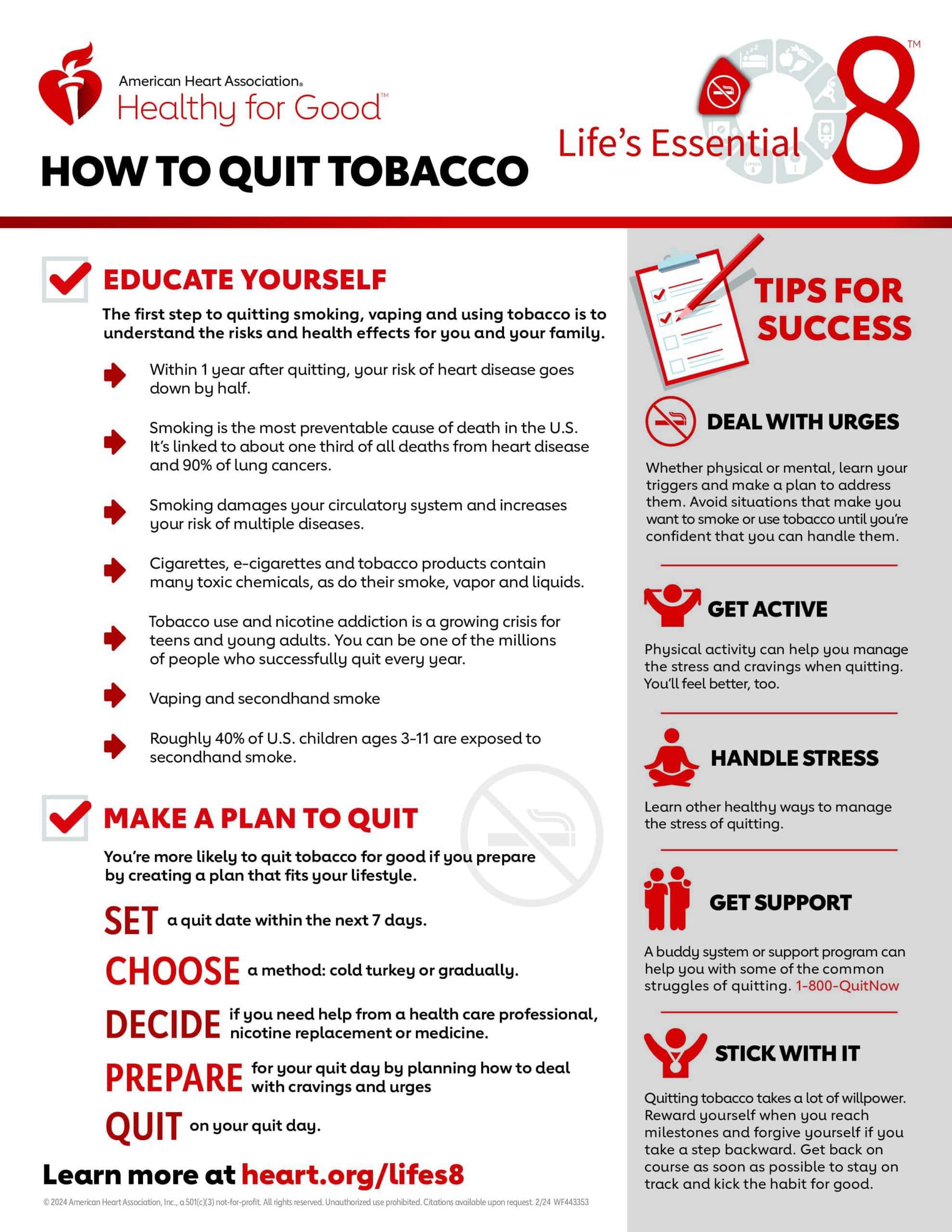
4. Get Healthy Sleep
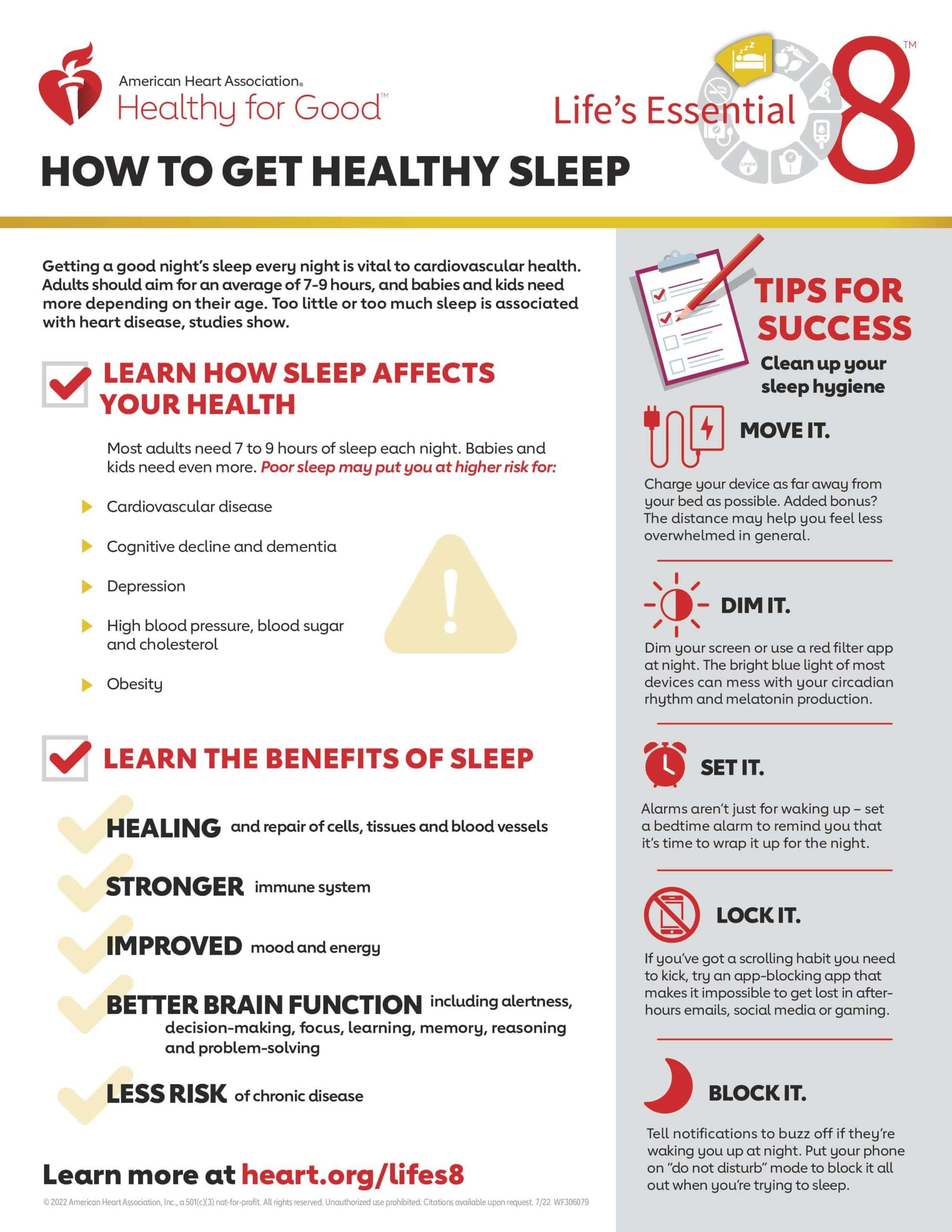
5. Manage Weight
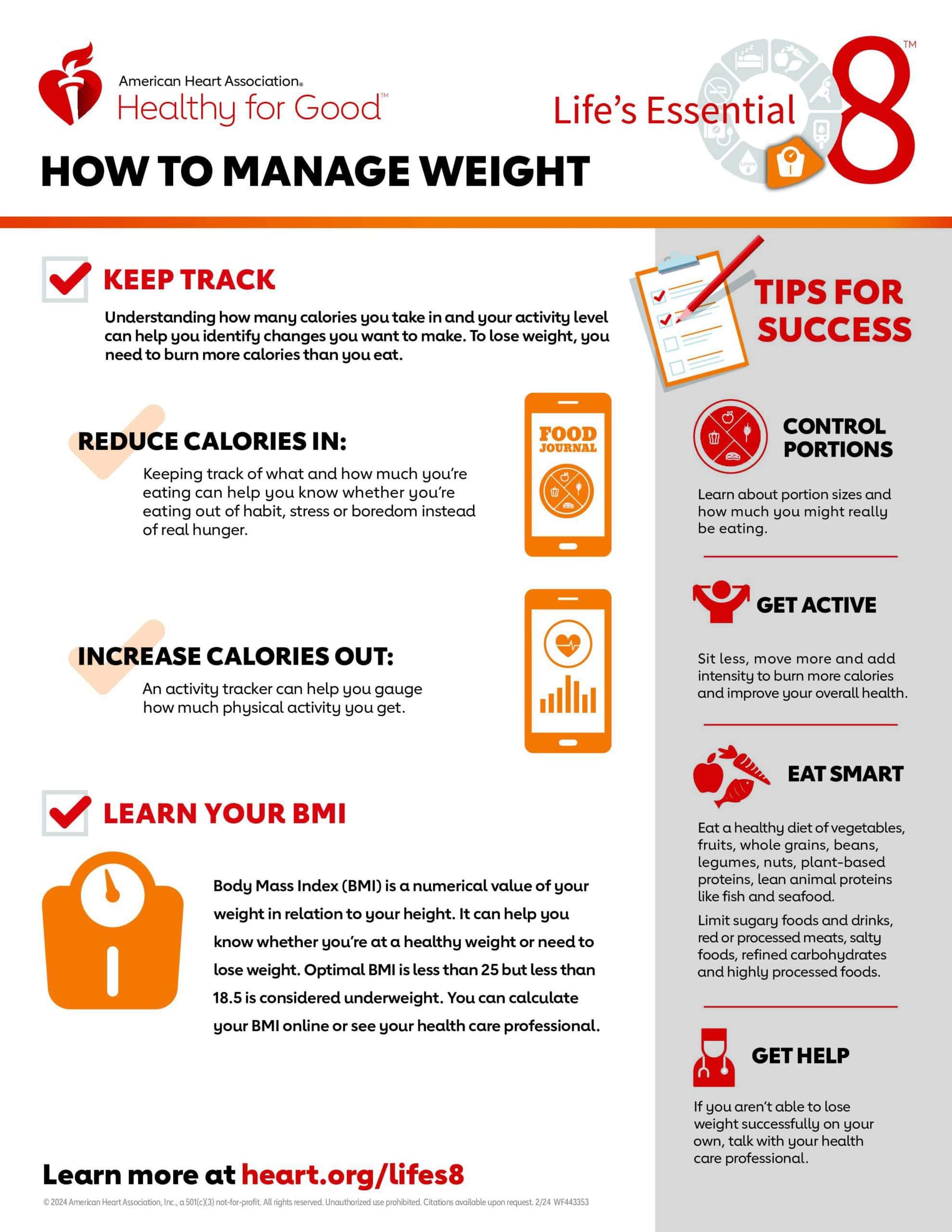
6. Control Cholesterol
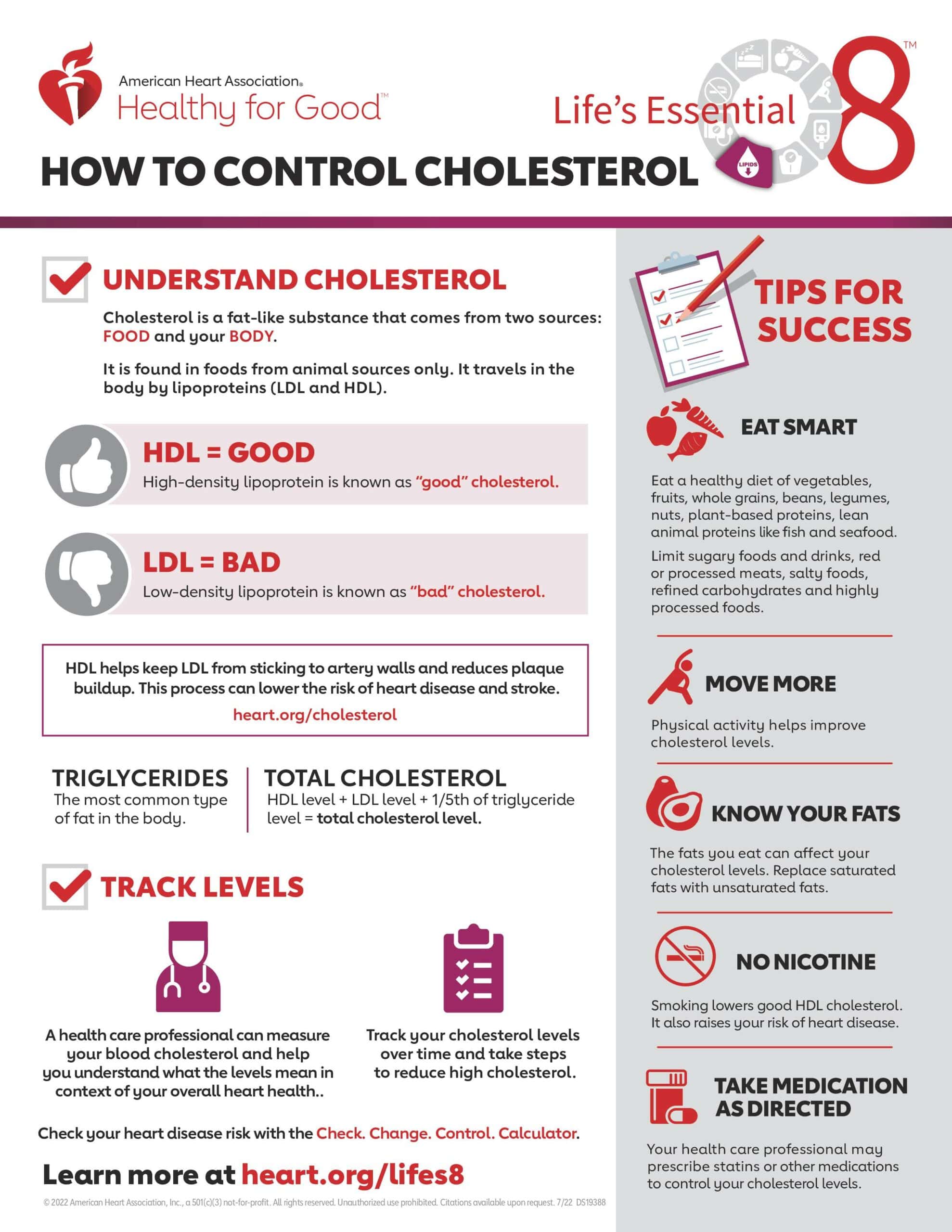
7. Manage Blood Sugar
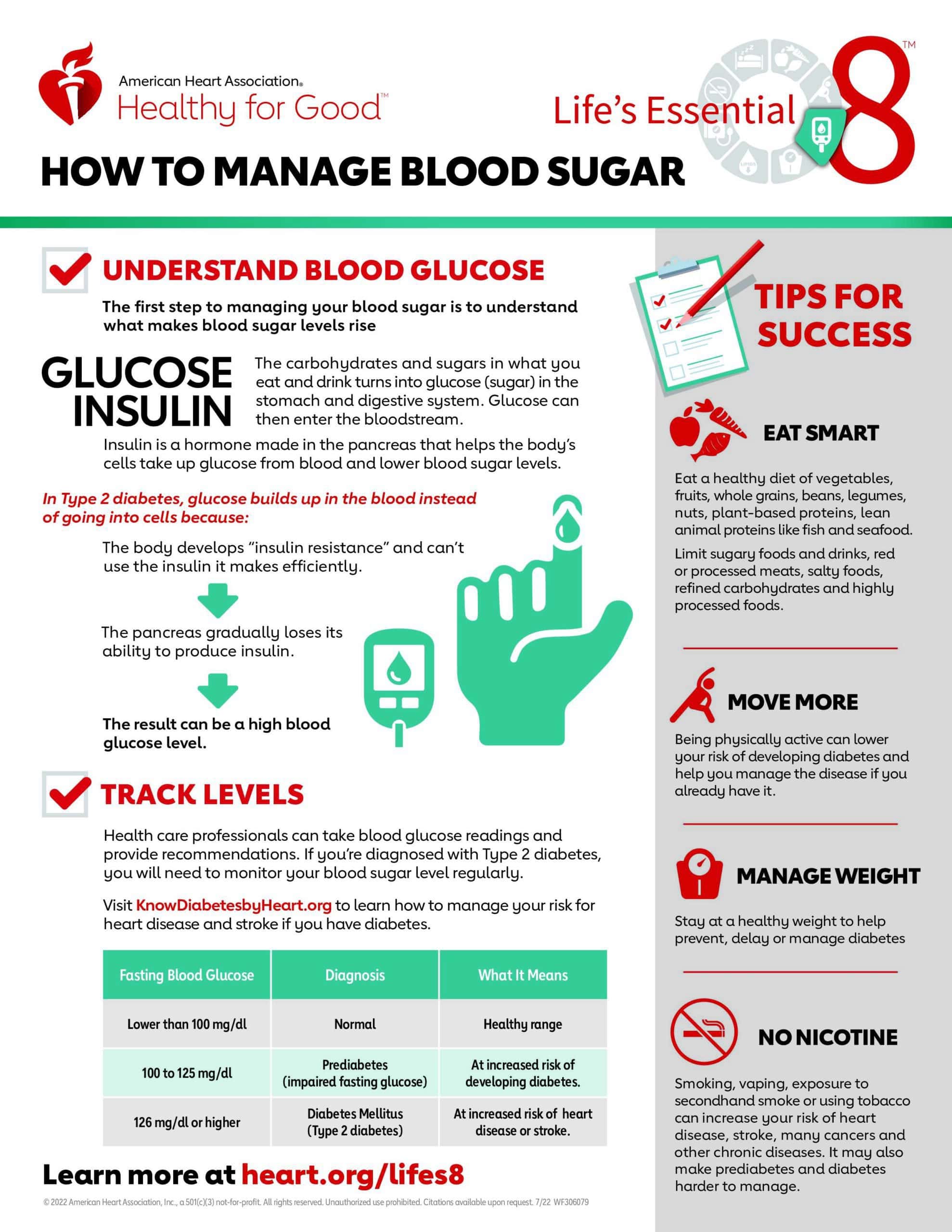
8. Manage Blood Pressure
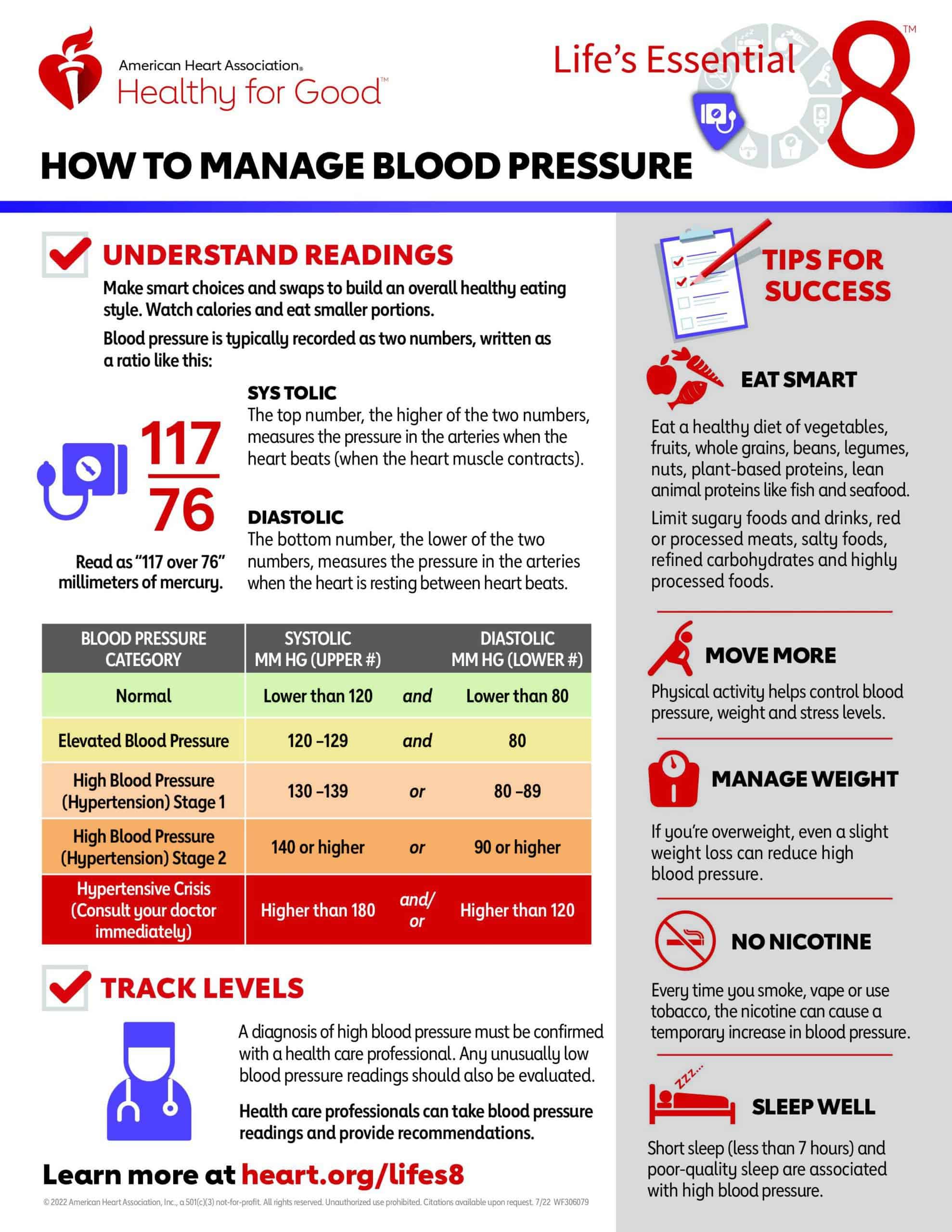
How to Support Longevity
1. Allow Yourself to Be Hungry
“There’s a lot of evidence that fasting turns on these longevity pathways,” Sinclair says. “… Don’t eat three large meals a day and snack in between. I think the old idea of always having food around and never being hungry has to be revised.”
2. Move, Move, Move
“Don’t sit in a chair all day. Get a standing desk if you can. Go for walks, and even better do HIIT if you can. Work out. Keep your muscles from declining,” says Sinclair.
Maybe it’s also finding a new sport that you want to play again and again, with friends — such as golf, tennis or pickleball.
3. Get Enough Sleep
Sleep affects all aspects of health and has huge effects on aging. It’s vital. Aim for at least seven hours a night.
This is especially true for people 50 and older. A 2019 study sought “to examine the associations of sleep duration and sleep disturbances with healthy and chronic disease-free life expectancy (LE) between ages 50 and 75.”
The study authors revealed that people who slept less than seven or more than nine hours per night had one to three years fewer healthy and disease-free years compared to those who got seven to nine hours daily. In addition, those who reported severe sleep disturbances had three to six fewer healthy and disease-free years.
The researchers concluded, “Sleeping 7-8.5 hours and having no sleep disturbances between ages 50 to 75 are associated with longer healthy and chronic disease-free LE.”
4. Have a Calm Mental Attitude
“Part of that is having a goal in life. The other is to have a partner or friends and family that are caring and loving around you. That will definitely reduce your amount of stress. It’ll help you sleep, and it’ll make every day much more enjoyable as well,” he says.
“Chronic stress is a real problem for aging,” he adds. “It can rapidly shorten the ends of chromosome, the telomeres. We also know mainly from studies in the lab with mice is that if you manipulate the brain of the mouse to have more inflammation, it will age prematurely and vice versa — if you lower the inflammation in the brain it can live longer.
“We also know that if you turn gene No. 1 on in the mouse’s brain, it’ll be healthier and live longer. That tells me probably how our brains are functioning, how worried we are, how depressed we are can have major impacts on the aging of the rest of the body.”
This is backed by outside research as well. In fact, research out of Harvard Medical School found the nervous system may play a surprising role in aging, and it turns out limiting brain activity may actually have a part in extending longevity.
It sounds odd, but by evaluating the brain tissue from hundreds of older people who had not shown any cognitive deficits before death, the researchers found that those with greater neuronal excitement — more brain activity — actually lived shorter lives than those with less neuronal excitement.
5. Focus on Eating the Right Foods
Remove the bad from the diet, and focus on nutritious foods:
- Any type of sugar is bad.
- Try not to eat too much process carbohydrates
- Keeping blood sugar levels at a steady level, not too high, is clearly important, so eat foods that support healthy blood sugar.
- Avoid excess body fat. It’s been shown obesity lowers the amount of NAD and lowers your sirtuin defenses.
“I stopped eating dessert at age 40, though I still steal tastes,” Sinclair says. “Try to focus on fresh food if you can, and also I think plant-based mainly is the way to go for ultimate longevity based on a lot of data over the last few thousand years. We know that that’s what you need to do.”
Health experts have even studied the link between diet and longevity, and in 2022, research unveiled some guidelines for a longevity diet. Published in the journal Cell, researchers analyzed data gathered for more than 100 years to determine the best eating approach for a longer life.
By following what they dubbed a longevity diet, the researchers determined women can increase longevity by nearly 11 years and men by up to 13 years if they follow this way of eating starting at age 20. If they wait until they turned 60, they still could extend their lives by up to eight years.
Other studies have found similar findings. For instance, research out of Norway found that changing from a more processed diet to a nutrient-dense diet that mimics the Mediterranean diet, may help extend life by eight to 13 years, depending on age and other factors.
So what is the longevity diet? Here are some of the main findings for eating to extend life:
- Consume complex carbohydrates.
- Focus on plant and fish proteins.
- Healthy fats should make up 30% of calories.
- Intermittent fasting is recommended, ideally for a 12- to 13-hour period.
- Consume the top anti-aging foods, such as olive oil, grapes, coffee and other high-antioxidant foods.
- Get your daily dose of fiber.
- Limit red meat and processed meat consumption.
- Avoid foods with added sugar, and limit sugar intake overall.
Sample Day for Dr. Sinclair
1. Say Goodbye to Three Meals a Day
“I try to skip breakfast or have a very small breakfast,” Sinclair says.
He has a few spoonfuls of homemade yogurt mixed with resveratrol if he does eat breakfast, then doesn’t eat again until having a late lunch or even dinner on busy days. When he does eat lunch, he typically eats light, such as a salad without much dressing and possibly some fruit. He also consumes plenty of hot drinks that are low in caffeine to support immunity.
“Then for dinner I eat mostly a plant-based diet,” Sinclair says. “I’ll eat a little meat since I lift weights to help body recover but not a big red meat, steak guy. I don’t think in the long run that’s super healthy. Carnivore diets are OK short run, but I focus on eating plants that are picked freshly.”
2. Sauna/Cold Plunge
Sinclair describes these as activities “that trick the body into feeling like it’s under threat, under adverse conditions, and it fights back. That’s hormesis. The definition of hormesis is to be uncomfortable, and that pays dividends in the long run.”
For instance, research shows using a sauna can help lead a longer, healthy life while cold water can have benefits for a longer life as well, whether it’s taking a cold shower or swimming in cold water.
3. Exercise
“For people who are in the second half of their life, it’s important to maintain flexibility and muscle strength. Lift some weights. Especially if you’re in the first half of your life and all the way up to 80, you want to do high-intensity interval training, get your heart rate up to a safe level. It doesn’t have to be for a half hour — it can be as little as 10 minutes every few days. That alone has been shown to have remarkable protection against diseases of aging,” says Sinclair.
4. Take Anti-Aging Supplements
- NAD+: “Sirtuins make enzymes that protect the body. They send out the troops to repair DNA and get rid of bad proteins that have accumulated. Those enzymes don’t work at all if they don’t have enough NAD. NAD is a common chemical that our bodies make all the time. We need it to survive. Without NAD we’d be dead in probably 30 seconds or less. Now we know NAD levels control our health and longevity. We think our body loses NAD and its ability to make NAD as we get older. But we also know there are ways to boost NAD levels naturally: One way is to exercise. One way is to be hungry. And another way is to take a supplement which consists of a precursor to NAD.”
- NMN: “It’s the immediate precursor to NAD, what the body make NAD from,” Sinclair says. “We’re doing clinical trials now. This is based mouse studies. The mice show promise, protection against loss of endurance, mice have more energy, they’re protected against diabetes. I’m taking this NAD booster with an abundance of caution.”
- Resveratrol
- Vitamin D
- Berberine
- Vitamin B12: Be careful. Dr. Sinclair had to stop taking it because his levels were exceedingly high, but it’s an important vitamin for longevity, so you may want to supplement if your levels are low.
Conclusion
- No one can outrun Father Time, but there are things you can do to slow the aging process and support longevity.
- Dr. David Sinclair has found that we can control up to 80% of the aging process through lifestyle factors.
- He says the keys to combat aging are to eat healthy, avoid gaining excess body fat, exercise, get enough sleep, have supportive friends and family, and allow yourself to be hungry every once in a while.




